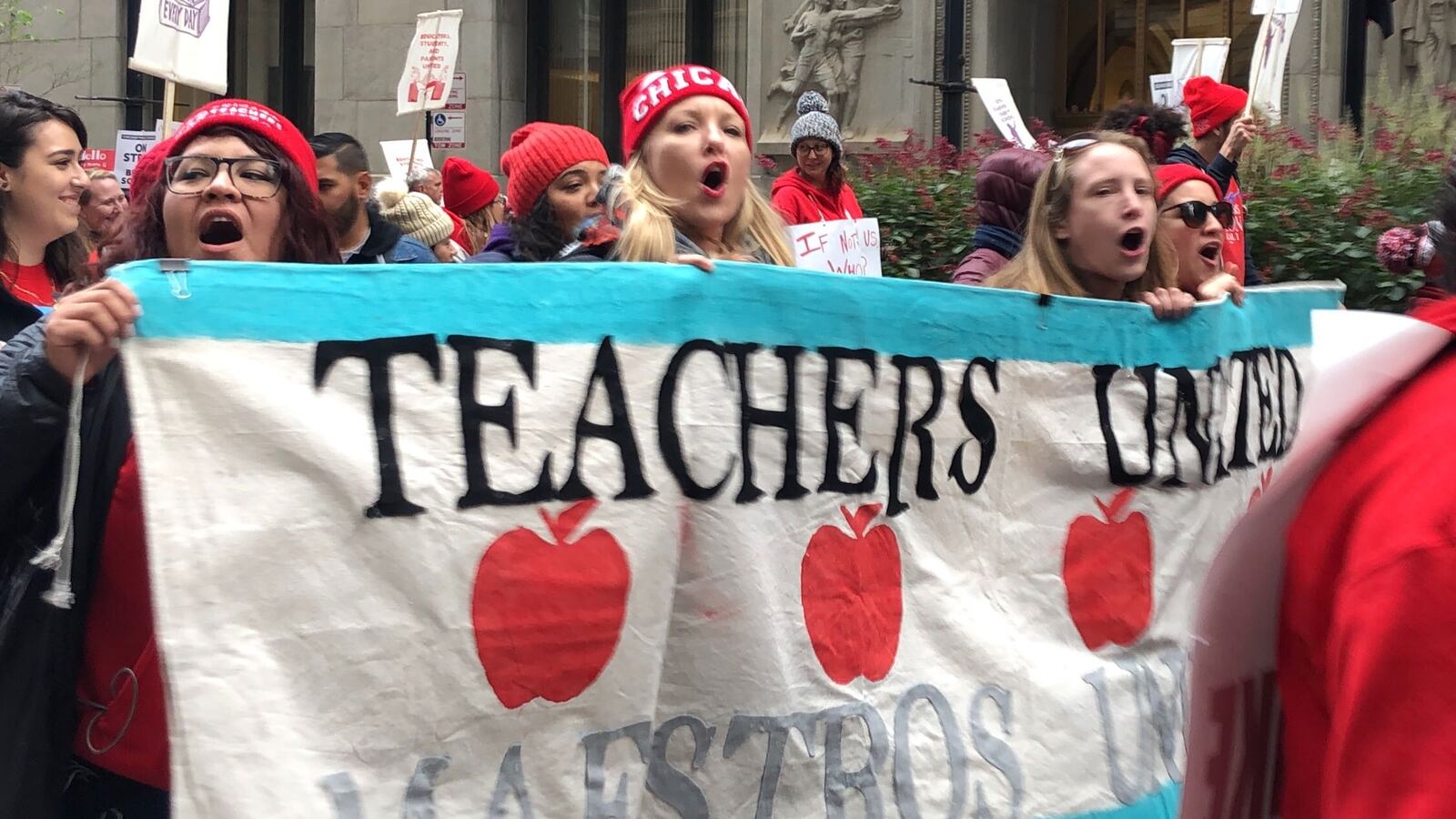The very last item on the table in the Chicago teachers strike, union officials said late Wednesday, was whether classes would be rescheduled — and teachers given an opportunity to make up the work time, and wages, they lost during their walkout.
Mayor Lori Lightfoot vowed not to make up strike time before the walkout started and again several times this week.
State law dictates that at least some time will need to be made up. Illinois requires all public schools to have 180 days on the calendar, plus five days set aside for emergencies. But districts are only required to give students 176 days of instruction.
Chicago Public Schools built an eight-day cushion in the school year beyond the state’s requirements. But the strike ran through that time this week.
“After the eighth day of the work stoppage, statute requires CPS to use emergency days, which must be made up during or at the end of the school year,” State Board of Education spokesperson Jackie Matthews said in a statement.
Chicago Public Schools officials indicated on Tuesday that the district’s position was more flexible than Lightfoot’s — and noted that the city’s Board of Education would have to vote on any schedule changes.
“The district is in the process of gathering a full understanding of potential outcomes and next steps regarding whether or not the district will make up school days missed beyond eight,” Emily Bolton, a district spokesperson, said in a statement. “The district hopes to have additional information and a decision prior to the November board meeting.”
Union officials argue that the days need to be made up to benefit students and point out that Lightfoot has otherwise held firm on preserving instructional time throughout negotiations.
But makeup days also matter to union members’ wallets, because teachers are not paid for days when they are on strike. Two weeks’ missed pay would undercut the gains that many teachers expect under the new contract. (For the city, recouping two weeks of teachers’ salaries would free up money in this year’s budget to pay for the contract it has offered.)
It’s common for makeup time to be negotiated in contract deals that end teacher strikes, according to Kency Nittler, director of teacher policy for the National Council on Teacher Quality.
That has been the case previously in Illinois, said Kathy Shaeval, director of collective bargaining for the Illinois Federation of Teachers. The number of days of permanently lost salary for educators who have gone on strike in the state over the past 30 years is “minuscule,” she said.
It’s not clear how Chicago teachers would make up pay given Lightfoot’s parameters. But after the seven-day strike in 2012, teachers and students went to school during their winter break and on President’s Day, and the school year was extended in June. More time would be needed now.
Typically, how missed days are made up is part of the final leg of contract negotiations, Shaevel said.
“It could just be, ‘We will make up the days and we’ll figure out a schedule later,’” Shaevel said. “But it’s an important final decision.”

